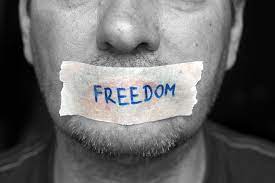As criticism grows of the government’s response to the earthquake crisis, the authorities have acted fast to silence and intimidate spreaders of ‘disinformation’
Journalists trying to cover the earthquake in Turkey are facing bans, detentions and investigations as the government wages war on alleged “disinformation”, and as the number of victims rises sharply.
Volkan Pekal, Adana correspondent for Evrensel newspaper, is one reporter who was taken into police custody just for taking pictures of earthquake-hit areas at the Adana City Hospital “without permission”. Evrensel said Pekal was banned from taking more pictures based on the local governor’s “verbal instruction,”.
“There are numerous reports that journalists in Diyarbakır are being prevented from covering the collapsed buildings on orders from the Disaster and Emergency Management Presidency, AFAD,” the Media and Law Studies Association, MLSA, said.
According to AFAD, at least 7,108 people lost their lives and nearly 41,000 were injured in Monday’s disaster when two major quakes registering 7.9 and 7.7 on the Richter scale hit southern and southeastern Turkey
Meanwhile prosecutors in Istanbul have started an investigation into veteran journalists Merdan Yanardag and Enver Aysever over their claims about the government’s response has been ineffective.
The prosecutor’s office said they were being investigated for “openly inciting people to hatred and enmity”.
Police said they had identified 90 people who had spread fake news and disinformation about the earthquake on social media, of whom four have been detained.
One was Ozgun Emre Koc, a political commentator with Daktilo 1984 academic news platform. Koc was detained on Tuesday over his critical tweets about the government’s response to the quake.
“The summoning of our colleague, political scientist Ozgun Emre Koc, is clearly a violation of academic freedoms and freedom of expression. It is a threat to society,” Daktilo 1984 said.
The government’s response to the earthquake has been criticized by numerous survivors, experts and journalists, who say it has failed to deliver assistance to several devastated areas and not used the armed forces effectively, despite having 120,000 personnel in the region.
According to media reports, many collapsed buildings have been left unattended and people left without water, electricity and food.
However, the government’s response has been to try and silence critics. The Directorate of Communications at the Turkish Presidency introduced an app on Tuesday on which people can report alleged fake news and disinformation.
President Recep Tayyip Erdogan announced a three-months state of emergency on Tuesday and will visit earthquake-hit cities on Wednesday.
Balkan Insight
